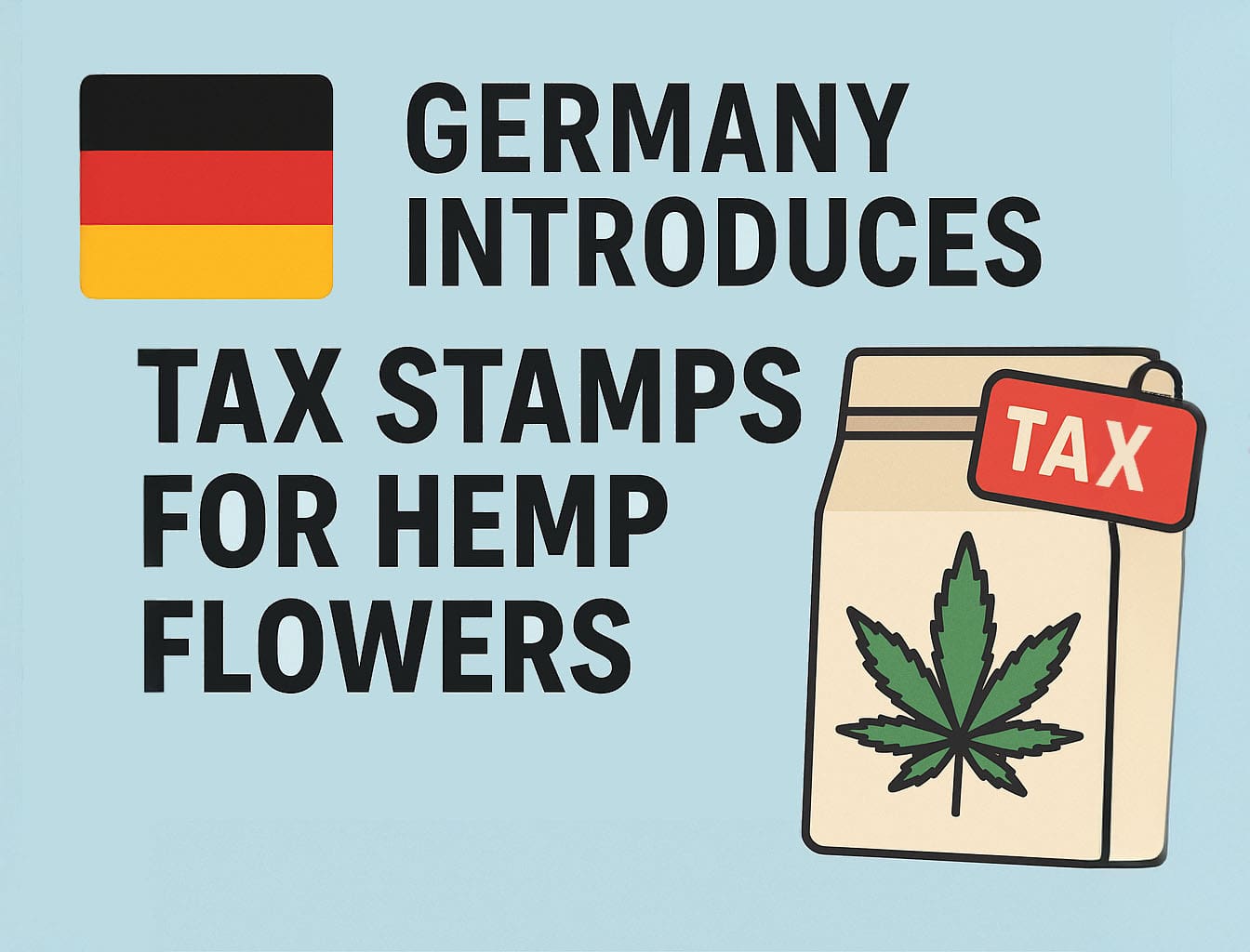
Blog
Germany Introduces Tax Stamps for Hemp Flowers: A Milestone for the Industry

Introduction
Germany has made a groundbreaking move by issuing tax stamps for hemp flowers, marking a pivotal moment for the European hemp and cannabis market. This decision reflects a shift toward recognizing hemp flowers not just as an agricultural product, but also as a taxable consumer good with regulated market potential. Industry experts see this as a crucial step in normalizing hemp trade, increasing transparency, and reducing grey-market activity.
Background: Hemp in Germany
Hemp cultivation has a long history in Germany, but until recently, the regulatory landscape limited its commercial potential. Farmers could grow hemp varieties containing less than 0.3% THC, yet restrictions on selling dried hemp flowers left most of the plant underutilized. Instead, the market relied heavily on imports or operated in legal grey areas, making it difficult for businesses to compete.
The introduction of tax stamps signals a turning point, aligning Germany’s hemp policy closer to its broader cannabis reforms and setting a precedent for other EU member states.
Why Tax Stamps Matter
Tax stamps are typically used on tobacco products and alcohol to demonstrate that excise duties have been paid. Applying this model to hemp flowers is significant for several reasons:
- Market Legitimacy: It places hemp in the same category of regulated consumer products, legitimizing retail sales.
- Revenue Generation: The German government will collect taxes from legal hemp sales, creating a new revenue stream.
- Consumer Protection: Taxation ensures compliance with safety and quality standards, reducing risks of untested or contaminated products.
- Industry Growth: Legal certainty encourages more farmers, retailers, and investors to enter the hemp sector.
Impact on the German Hemp Market
For German farmers, the move opens up new opportunities to monetize the entire hemp plant, rather than limiting sales to seeds or fiber. Retailers now have a legal pathway to sell hemp flowers with proper labeling and tax compliance.
Consumers, meanwhile, gain access to regulated hemp flowers with verified origin and quality — a major step away from unregulated markets. This transparency could also help ease stigma around hemp use, especially for wellness and non-intoxicating applications.
European Context
Germany’s decision comes at a time when hemp regulation across Europe is evolving. Countries like Switzerland and Italy have already established frameworks for low-THC cannabis flowers, but the introduction of tax stamps places Germany ahead in formalizing hemp commerce within the EU.
The move also supports the European Industrial Hemp Association’s (EIHA) push for harmonized rules across member states. With Germany’s large market size and influence in EU policymaking, its adoption of tax stamps could inspire other countries to adopt similar systems.
Challenges Ahead
While the development is widely seen as positive, challenges remain:
- Tax Rate Balance: If taxes are too high, the grey market may persist.
- Clarity on THC Limits: Strict thresholds may complicate product variety and farmer flexibility.
- Administrative Burden: Small businesses may struggle with compliance and additional paperwork.
- EU-Wide Alignment: Without harmonized policies, cross-border hemp trade will remain complex.
Future Outlook
The issuance of tax stamps represents more than just a bureaucratic change — it is a symbolic recognition of hemp’s legitimacy in Germany’s consumer economy. As Germany continues to implement broader cannabis reforms, hemp is now positioned to play a central role in sustainable agriculture, wellness products, and retail innovation.
If successful, this system could serve as a blueprint for other European countries, accelerating the growth of a transparent and standardized hemp flower market across the continent.
Frequently Asked Questions
What are hemp tax stamps in Germany?
They are official stamps applied to hemp flower packaging to show that excise duties have been paid, similar to those used on tobacco products.
Does this mean hemp flowers are now fully legal in Germany?
Yes, hemp flowers with THC levels below legal limits can be sold in Germany, provided they carry a tax stamp and comply with regulations.
How will consumers benefit from tax stamps?
Consumers gain access to regulated, quality-controlled hemp flowers, reducing risks associated with untested products.
Will this affect cannabis legalization in Germany?
While separate from recreational cannabis reform, the tax stamp initiative complements Germany’s broader shift toward normalizing cannabis and hemp products.
Disclaimer: This blog is for informational and educational purposes only. We review and reference available studies and reputable sources; however, content may not reflect the most current research or regulations and should not be taken as medical, legal, or professional advice. We do not make or imply health claims. Products mentioned are not intended to diagnose, treat, cure, or prevent any disease and statements have not been evaluated by EFSA or the FDA. Effects can vary between individuals. Always consult a qualified healthcare professional before use and verify that any product or ingredient is lawful in your jurisdiction.






